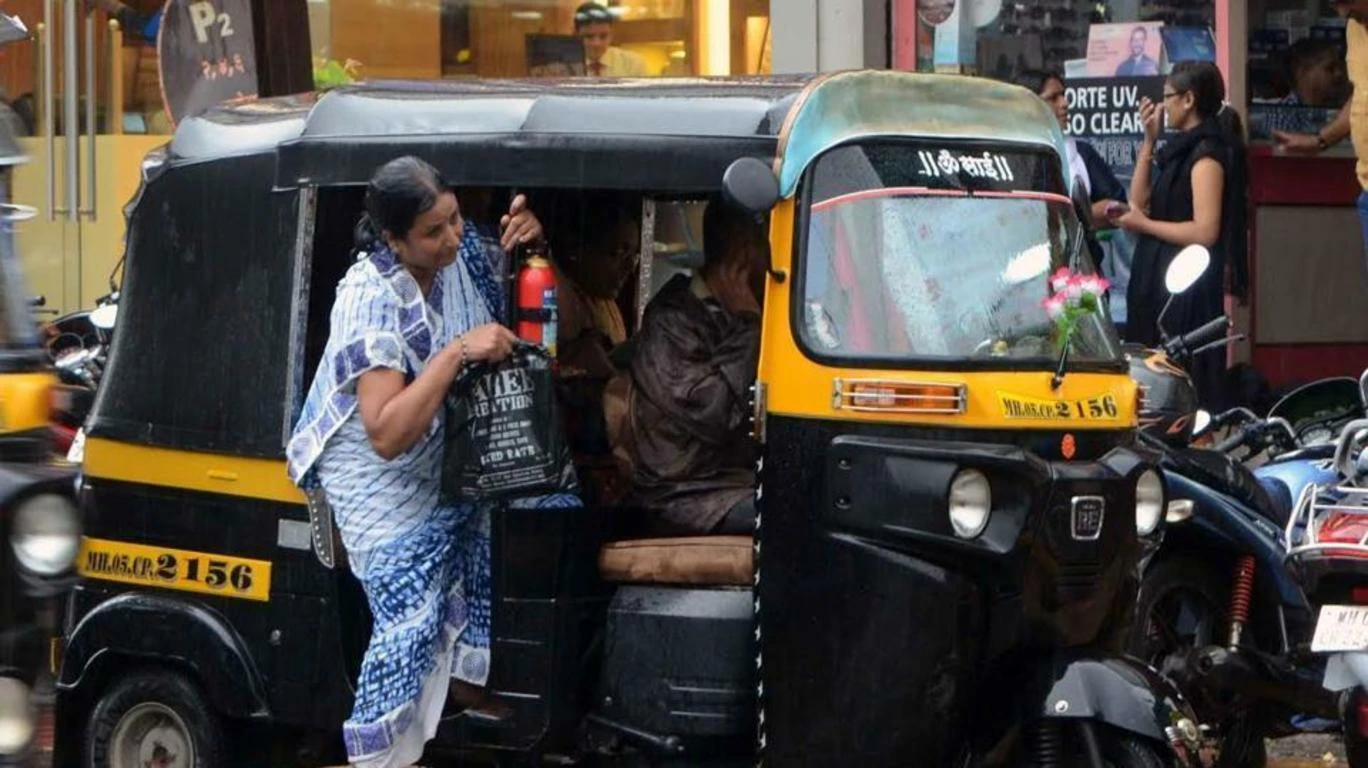Rise in per km charge for auto rickshaws, AC, and non-AC taxis: The revised auto rickshaw and taxi fares have received government approval in Delhi.

Rise in per km charge for auto rickshaws, AC, and non-AC taxis: The revised auto rickshaw and taxi fares have received government approval in Delhi.
Auto rickshaws and taxis play a big role in meeting the basic need for transportation, especially in the cityside. As the prices for CNG rise, Govt. decided to revise the fare price of these vehicles to get the right price for the drivers of these vehicles.
When the Delhi government announced new auto-rickshaw prices, commuters in the nation’s capital will have to fork over extra money for trips. The meter down charge (minimum fare) for the first 1.5 kilometers of auto-rickshaw travel has increased from Rs 25 to Rs 30, and the per kilometer charge following meter down has increased from Rs 9.50 to Rs 11. These changes are by the updated fares.
The per-kilometer fee for taxis has increased from Rs. 14 to Rs. 17, and from Rs. 16 to Rs. 20, depending on if the vehicle is air-conditioned or not.

Common people use these vehicles regularly so a rise in the fare is like an extra expenditure for them. It may sound like a very less amount but when people will start paying this extra money every day, it’ll add up as an extra cost for them.
Due to recent hikes in the price of CNG, nearly two lakh auto rickshaws and taxi drivers who were obliged to accept more costs would now be eased by the lower pricing.
Kailash Gahlot, the minister of transport for Delhi, had received many emails regarding the issue of fare rises from the companies and unions that represent autorickshaws and taxis.
The most recent change was made in 2020, two years after the auto fare was changed. In comparison, the taxi fare was changed in 2013.
Revised prices for auto rickshaws and taxis
In Delhi, using cabs and auto rickshaws will suddenly be more expensive. The minimum price (meter down charge) for the first 1.5 kilometers will now cost Rs 30, up from Rs 25 before, for anyone taking an auto. After meters are down, the per-kilometer charge has been increased from Rs. 9.50 to Rs. 11.
On the other side, the Base Rate for the first kilometer in taxis (both AC and non-AC) has been increased from Rs 25 to Rs 40. The increase in cost for non-AC taxis is Rs 2, while it is Rs 4 for AC taxis. Therefore, after the meter goes down, the per-kilometer rate for anyone using a non-AC taxi will be Rs 17, up from Rs 14. They will have to pay Rs 20, rather than Rs 16, for AC vehicles.
Taxi drivers are now allowed to charge Rs. 15 instead of Rs. 10 for additional luggage. The night surge and waiting costs apply to taxis too.
In the meantime, the waiting and luggage fees for vehicles stay the same at 75 pesewas per minute and Rs 7.5 for extra luggage, respectively. Taxis charge Rs. 15 for additional bags.
The autorickshaw and taxi companies and unions have made many submissions to Delhi Transport Minister Kailash Gahlot regarding the subject of fare increases.

CNG and Petrol price hike is the main reason for the increased fare
Due to a rise in gasoline prices by state-owned businesses to offset the negative economic effects of the Ukraine War, the price of CNG in Delhi was Rs 71.61 per kg.
In Ghaziabad, Noida, and Greater Noida, the cost of CNG has increased to Rs 74.17 per kg. CNG is available in Gurugram for Rs 74.94 per kilogram.
Currently, a liter of gasoline costs Rs 105.41 in the national capital, while a liter of diesel costs Rs 96.67.
In response to increased fuel prices, a number of auto-rickshaw and taxi unions went on strike and demanded a CNG subsidy and a fee revision.
Rajendra Soni, the general secretary of the Delhi Auto Rickshaw Sangh, announced that a demonstration would be held in front of Chief Minister Arvind Kejriwal’s residence in Civil Lines to press for the demands.
To counteract the effects of rising fuel prices, the unions representing cab and auto drivers have been calling for rate increases and lower CNG pricing.
Despite the Delhi government’s announcement that a committee will be established to discuss a fare revision in a time-bound manner, they continued to strike.
In addition to the city’s public transportation infrastructure, there are more than 80,000 registered taxis and over 90,000 registered cars.
Meanwhile, the oil ministry has not allocated any new natural gas from domestic fields to the city gas sector, causing CNG and piped cooking gas prices to reach all-time highs. However, the ministry steadfastly maintained that allocations have not ceased and that supplying more to the sector would result in a reduction in supplies to industries like power and fertilizer.
Despite the Union Cabinet’s resolution to give the city gas distribution sector priority for a 100% gas supply under a “no cut” policy, current supplies are at March 2021 demand levels. Due to this, city gas operators have had to purchase expensive imported LNG to make up the difference, which has caused prices to increase by a record amount.
edited and proofread by nikita sharma





